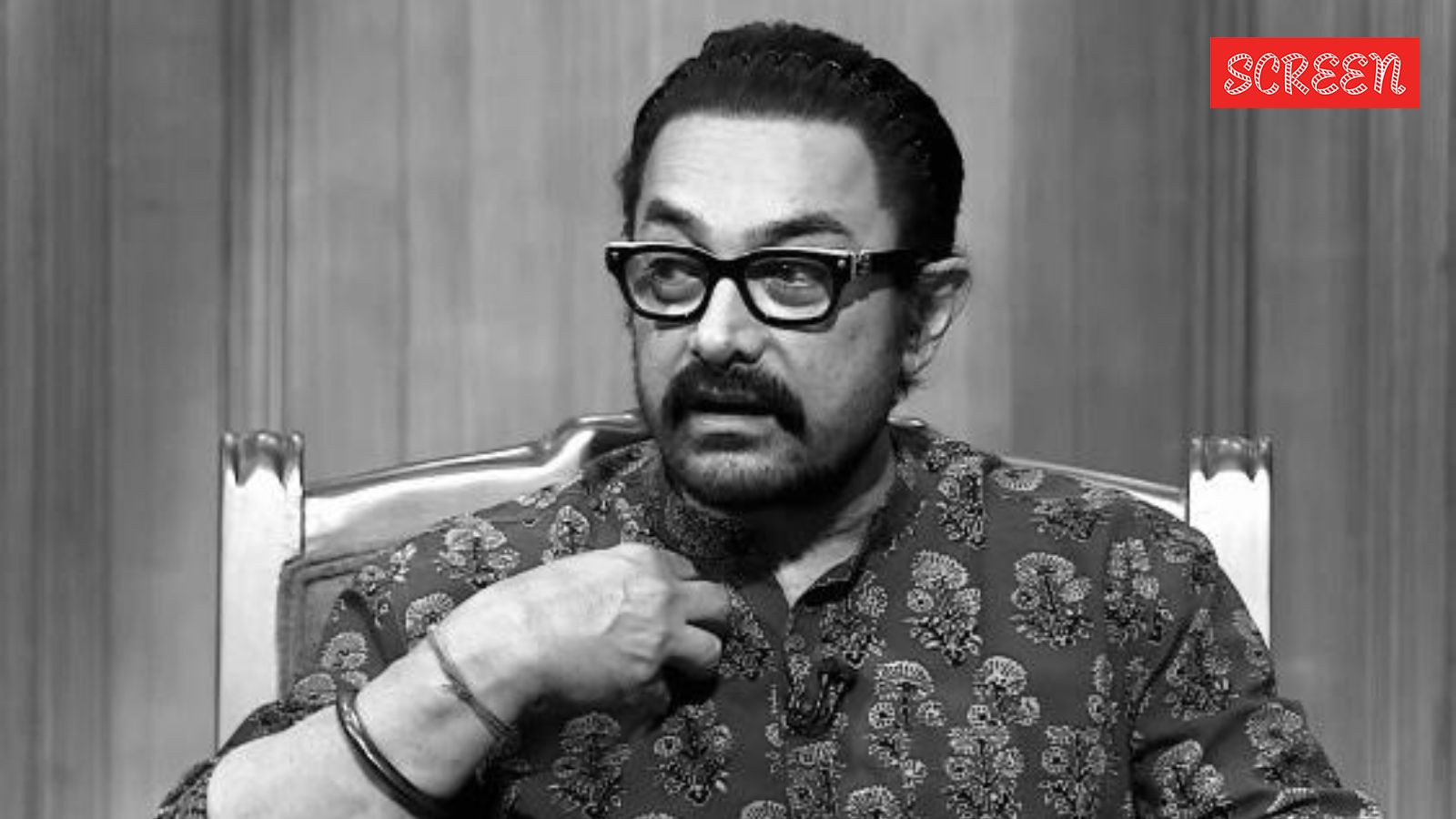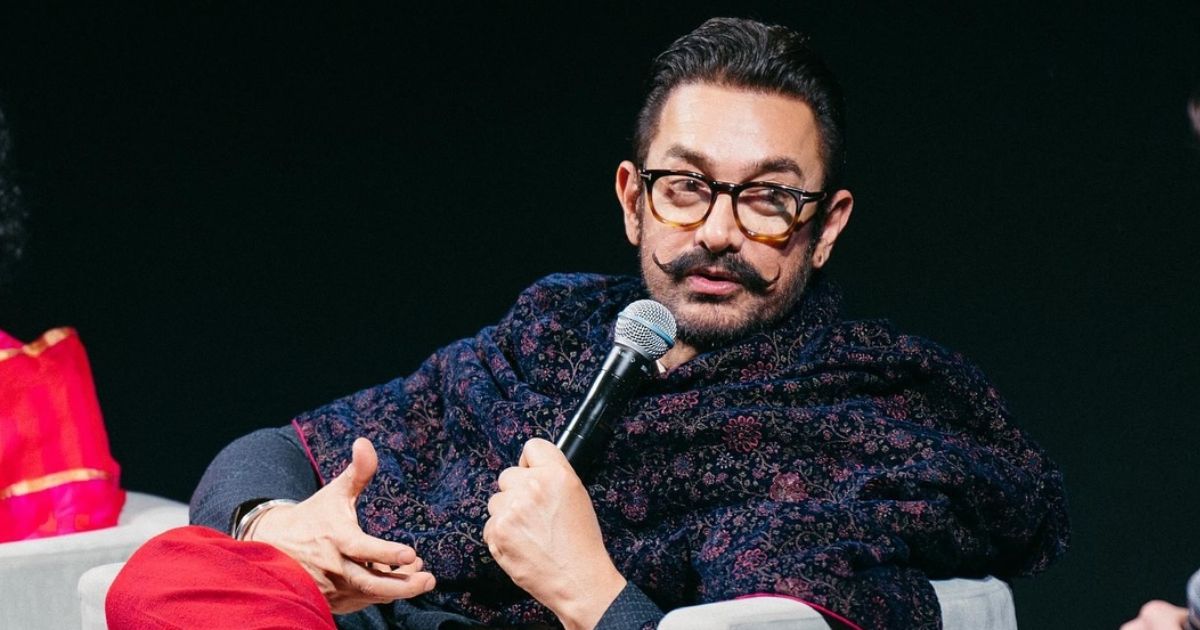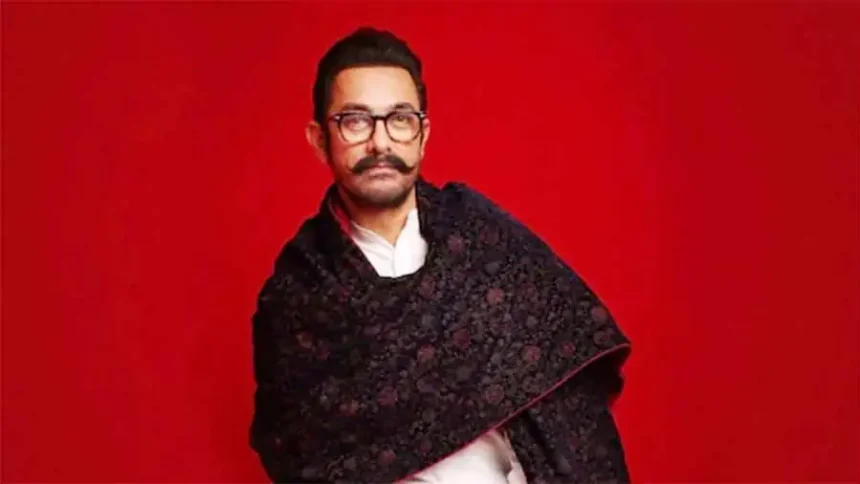What does it mean to be a superstar in India? The answer seems obvious—global fame, mass adulation, and iconic status. But when it comes to being a Muslim superstar in India,Aamir Khan Patriotism the terrain becomes infinitely more complicated, layered with suspicion, subtle coercion, and ever-growing demands of public loyalty. This was sharply evident in Aamir Khan’s recent appearance on Aap Ki Adalat, where instead of merely promoting his latest film Sitaare Zameen Par, Khan found himself defending his patriotism for over 30 minutes.
Two minutes into the interview, the conversation took a turn. The host started questioning Khan’s loyalty, asking him to account for his citizenship, his finances, his children’s names, and even his public statements—or lack thereof—on various political and cross-border issues. The conversation subtly but clearly moved beyond entertainment, becoming a forced performance of nationalist allegiance. Aamir Khan Patriotism, with characteristic grace and composure, answered every question, but beneath his calm exterior, the fatigue was palpable.
The Heavy Burden of Proving Aamir Khan Patriotism

At various points, Khan was asked whether he received income from foreign sources, why he named his children with Muslim names, and why he hasn’t explicitly condemned Pakistan more frequently. He was even questioned about why his films sometimes challenge majoritarian sentiments. These aren’t questions typically directed at those who hold real power in government or industry. Rather, they reflect a double standard reserved for visible minorities in public life.
More disturbingly, this episode reveals a broader cultural shift—where patriotism must be performed repeatedly by certain individuals based on their identity. Despite having made patriotic films like Sarfarosh—which, as Khan pointed out, was one of the first mainstream movies to address tensions with Pakistan—he is still made to justify his place in the national narrative.
Media’s Role: The Pliant Gatekeeper
Rather than challenging power structures or holding political authorities accountable, large sections of India’s mainstream media often play the role of gatekeepers of “acceptable nationalism.” The host’s tone was light-hearted, almost jovial, yet the gravity of the interrogation remained intact. The underlying message was clear: compliance is expected.

There is little appetite in today’s media to question the erosion of pluralism or the stoking of divisive sentiments. Instead, it is easier to spotlight an actor’s supposed ideological transgressions than examine systemic intolerance. For celebrities like Aamir Khan, the media circus becomes a form of trial—subtle but persistent, couched in the language of entertainment but designed to reinforce conformity.
Fandom’s Evolving Toxicity: From Admiration to Ownership
More than media complicity, what stands out is the transformation of modern fandom. Fans no longer merely admire stars; they demand ideological alignment. They project their own political views onto public figures, expecting those individuals to mirror their values unequivocally. Any deviation feels like personal betrayal.
During the show, for example, one audience member asked Aamir Khan for his views on Operation Sindoor. The question wasn’t about genuine curiosity; it was an invitation to perform allegiance publicly, to reaffirm his loyalty before a suspicious crowd. And no matter how comprehensive Khan’s answers were, the gaze of doubt remained unrelenting.
This transformation of fandom reflects a deeply troubling dynamic where celebrity is conditional. Stars are expected not only to entertain but to constantly reaffirm their belonging, their faith, and their political correctness, especially if they come from minority communities. When those expectations aren’t met, they face boycotts, trolling, or even professional setbacks—something Khan experienced when his previous film faced coordinated attacks disguised as patriotism.
A Repetitive Cycle for Muslim Superstars

It’s important to note that Aamir Khan’s experience isn’t isolated. Other Muslim superstars like Shah Rukh Khan and Salman Khan have also faced similar cycles of suspicion. As film scholar Richard Dyer observed, “a star image is never whole; it is always contradictory.” Their public personas are pulled in multiple directions, fragmented by the political anxieties of their diverse fan bases.
In this context, perhaps the more relevant question isn’t just what it means to be a superstar, but what it means to be a fan today. Fans expect emotional, cultural, and political subservience. Stardom now demands not only talent and charisma but also complete adherence to an increasingly rigid, nationalist template.
Performing Allegiance in the Age of Fear
The new cultural contract between fans and celebrities is dangerously asymmetrical. As fear-driven nationalism becomes mainstream, celebrities—especially those from minority backgrounds—are expected to function as cultural validators of the state’s political narrative. Their careers are increasingly dependent on their ability to manage these public loyalty tests.
This is not merely about Aamir Khan’s personal choices or media strategy. It reflects the broader environment where public trust is rationed by identity, and belonging must be constantly negotiated. Khan’s recent television appearance was less about clarifying public misunderstandings and more about navigating this fraught landscape carefully to avoid renewed political and social backlash.
Conclusion: An Uneasy Portrait of Modern Stardom
Aamir Khan’s recent defense of his patriotism is a revealing portrait of not only a superstar under pressure but also of a society where celebrity culture has grown disturbingly authoritarian. As fandom transforms into a space of ownership and ideological policing, even the most successful stars must endure repetitive loyalty tests.

The burden should not fall on artists to prove their belonging. Rather, it is time for fans, media, and society at large to reflect on the increasingly toxic demands being placed on public figures in the name of patriotism. Until then, the quiet fatigue behind Khan’s gracious smile will remain a powerful, uncomfortable symbol of what it means to navigate fame in a polarized India.
As reported by The Guardian, this prolonged grilling highlights the unsettling intersection of celebrity, politics, and identity in India’s current environment.
Read more: How Celebrity Culture Is Evolving in India’s Digital Era.









